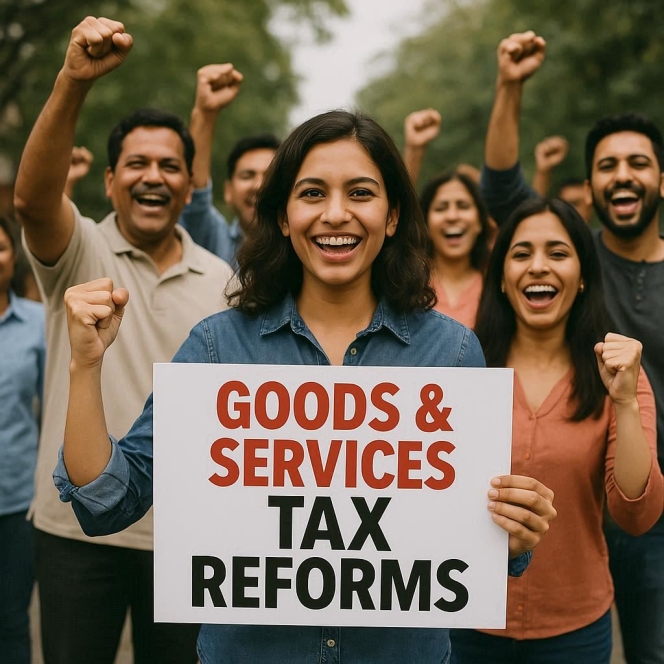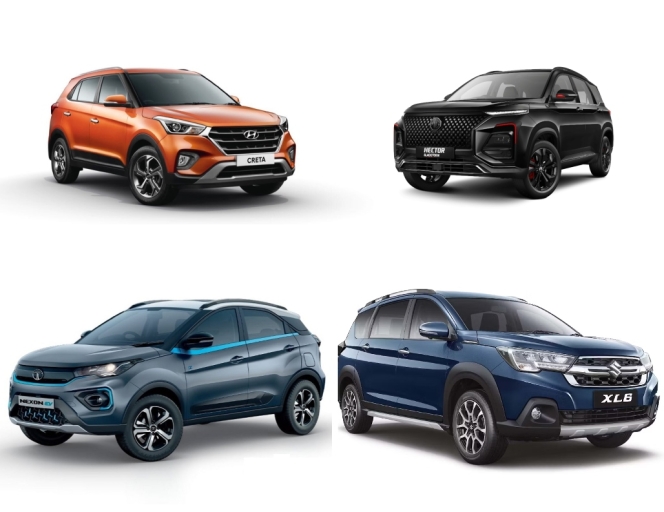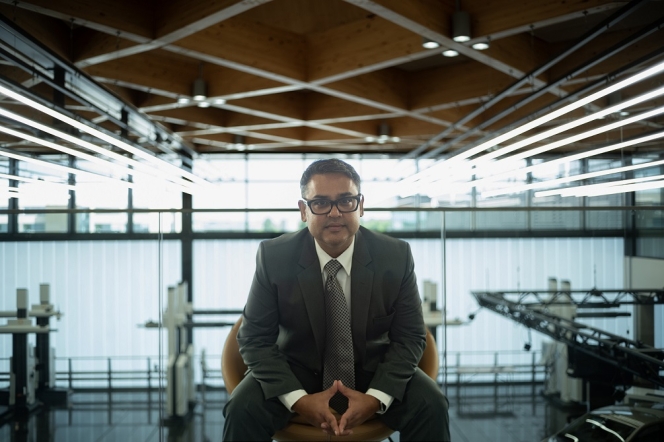Mobility: Seeing A Disruption Like Never Before
- By Juili Eklahare
- December 08, 2022

The mobility industry is going through one of the biggest transformations and the ‘CII West Tech Summit 2022 – Future Mobility’ drew attention to it.
Addressing several facets of mobility, the ‘West Tech Summit 2022 – Future Mobility’ organised by Confederation of Indian Industry (CII) recently brought together prominent personalities from the automotive industry. It kicked-off with the inaugural session with the theme, ‘Future mobility’.
Sanjeev Fadnavis, CEO, Nitor Infotech, set the tone for the event and invited Sunil Chordia, Chairman and Managing Director, Rajratan Global Wire, to share his thoughts.
In his address, Chordia mentioned that people are looking for transportation solutions that make life easier. They are looking at solutions that use practical measures in cities and integrate seamlessly with their devices, improving road safety in the process and giving driving pleasure and freedom.
Stating that urban areas are expanding, and traffic congestion is growing, Chordia said, “There is a greater need to find ecological solutions for the rising air and sound pollution. People want to optimise their transportation through on-demand solutions, vehicle sharing and low-cost options.”
Expressing that autonomous vehicles are transforming the way people and goods travel from point A to point B, Chordia averred, “Public and private partnerships are being enforced to help communities become cleaner, more pedestrian-friendly and less dependent on private transportation. This shift will not only affect automakers, but also industries from insurance to healthcare to the media, who should reconsider how they create value in this emerging environment.” He stressed that the major trends for more environment-friendly mobility is electric mobility. Quiet and efficient, battery-powered electric cars have already brought about a change, particularly in private transport, and represent an alternative to commercial engines.
Commenting that an electric car can be charged at home and depending on the model, pure electric cars are offering a range of over 700 kilometres already on one charge, Chordia explained, “In the field of micro-mobility, e-scooters and e-bikes have established themselves, as have electric buses and trucks in the commercial vehicle sector. What’s more, connected mobility or the networking of smart devices via the Internet supports these goals. It enables digital data-driven mobility solutions.”
Changing habits and thoughts
Of the opinion that advances in transportation will make mobility faster and easier to plan, benefitting supply chains and industrial production, Chordia emphasised that by 2030, less parking and more infrastructure to cater to scooters, bikes and other new modes of transportation will be seen. He expressed that the future of mobility will require compromises and change in habits as well as thoughts. Factors such as comfort, time, cost and personal willingness will play a significant role. They will determine the choice of transport means.
Highlighting the shift from hardware to software, which means that cars will operate more like smartphones, Chordia said, “Connected vehicles will account for 100 percent of the market by 2035. EVs will account for 35 percent of new car sales in 2035. With electric vehicles gaining viability as solutions that settle the pollution problem, industry investments will expand the range of EVs by boosting the power and reducing the cost of electric batteries.”
Respect the air we breathe
Of the opinion that future mobility will see a lot of regulations, new technologies and disruptive changes, Alakesh Roy, Managing Director and CEO, Bolt Cargo India, said that these will have to be addressed at the same time. He commented that there will be expectations regarding future technologies and business models because there will be an urgent need to double transformation. “We will have to build businesses that are crisis-resistant,” Roy expressed.
Emphasising the need to choose a technology that is sustainable and can benefit in the long run, Roy said, “Technology is getting smaller as people have it in the palm of their hands.” On the need to reduce traffic congestion, he quipped, “We need to respect the air we breathe in. If we don't respect the air we breathe, then we are leaving behind something bad for the future generations.”
Regarding autonomous vehicles, Roy expressed that there was a slow shift towards the vehicle driving us, than we driving it. A concept called Connected, Autonomous, Shared and Electric (CASE) is coming up, he informed.
Strong national development and the need to curb pollution
Of the opinion that the challenge regarding mobility in India is because of development that is happening in bits and pockets, Sriram Narayanan, Managing Director, Endress+Hauser (India) – Automation Instrumentation, said, “That’s the reason why we have issues of traffic jams in cities like Mumbai and Pune. Imagine if we could have vehicles in cities that could jump over a distance. It would be a dream.”
Stressing on the need for intelligent maps that would indicate the right time to travel, Roy spoke about balance between travel and working from home. “Work and business were managed for two to three years without travelling. Mobility is something that is also related to the way we have to work, which influences sustainability.”
Of the opinion that a lot of development is happening in terms of infrastructure, Roy said, “When it comes to autonomous vehicles, it is my personal belief that human beings are the most intelligent. Autonomous driving is needed in the western region because there is a lack of population over there. However, taking autonomous driving ahead in India will be a challenge. Human life is the most precious thing. So, keeping this in mind, we should focus on how safe we can make our vehicles.”
Commenting that autonomous driving will bring enormous safety, Arvind Goel, Managing Director and CEO, Tata AutoComp Systems, cited the death of about 450 people in road accidents every day. He expressed further, “This is a reportable number. Therefore, if we look at this from the future mobility point of view, then we need to cater in terms of both, safety and environment. About 990 million metric tonnes of equivalent oil consumption takes place in India today. Irrespective of what happens with electric vehicles, the oil consumption is still going to go up. We are not going to convert every vehicle into an EV.”
Of the opinion that there are huge opportunities in India from a business point of view regarding technological developments in EVs, Goel remarked, “Areas like power electronics and software development show a lot of opportunities for the country. When it comes to power electronics, we have a lot of good engineering strength in India. As for software development, the battery needs a battery management system (BMS), and a management system is fully software-driven. Plus, huge requirements are coming in India for supplying ICE engine parts.”
In the first plenary session with the theme ‘Green mobility and autonomous vehicles’ moderated by Dr Prashant Pansare, Managing Director, Inteliment Technologies, Dr Yogesh Dadke, APAC IT Leader, Adient India, asserted that Industry 4.0 is creating a digital footprint of basic product structures like automotive seats where adjustments happen on a digital platform and are based on the sensors fitted in it.
Stressing on industry-institute interaction and how the real-life problem is discipline-agnostic, Dr Siddharth Jabade, Vice Chancellor, Vishwakarma University, said, “A solution is needed without thinking in terms of mechanical, IT or AI. It has to be a team of students doing it with well-defined milestones and variables. One of our strengths is data. We need to see how we can create data sets in the context of India and put them to use. Another factor we need to look into is what could be the sensor fusion technologies. And lastly, how we can convert existing vehicles into autonomous vehicles.”
Of the opinion that Industry 4.0 is not a fancy statement anymore in terms of future mobility, J P Govindarajan, Managing Director and General Manager (India), Garrett Motion Technologies (India), stressed on the need to digitalise. “The moment you digitalise, almost 15-20 percent of hidden capacity is exposed,” he quipped. He explained that if the level of complexities in India could be handled, an industry or enterprise can succeed anywhere in the world. There is a great opportunity for start-ups and smaller enterprises to develop AR/VR-based training bodies as this will not only bring experience but will enable to seek the best out of solutions, he said.
Sustainable mobility
Commenting that future mobility is about being sustainable, Abhijeet Deshmukh, Leader Engineering and Technology, Danfoss Power Solutions, mentioned that electric batteries may not be the only solution. Stating that mobility covers three modes – air, road and water – in a broader way, he drew attention to zero emission policies in cities like London. “The biggest change is that the main noise-creating parameter – the engine – has calmed down, because we have batteries. Thus, apart from the emissions, another very important requirement from the society that we are taking care of is the reduction in noise,” said Deshmukh. Referring to the need to look at the kilowatt-hour charge that can be supplied in a single chare cycle, he expressed, “The industry is looking at energy-efficient solutions that can run for at least a day shift, without interruptions.”
Drawing attention to the cost of transport by water being one third of that by land, Deshmukh said that the future of India is not about step-to-step evolution, but about taking a leap. The Indian government is focusing on electrification of marine highways where Danfoss is playing a big role, he informed.
Citing that his company is in the business to be at the top and to transform itself into an ecosystem that is self-sustainable, Dr Dadke said that the move from ICEs to EVs highlights a prominent difference of weight. The industry should concentrate on this so that lightweight vehicles can be made without compromising safety, he added.
Embracing new technologies and tech mobility
In the second session with the theme ‘Mobility and future of work’, Yashwant Desai, Founder and Managing Director, Perennial Technologies, remarked that the biggest challenge in mobility will be about handling material mobility. “The intelligent ecosystem will work around three basic technologies – energy technology, mining technology and information technology. With the new way of working, we need to see how people will embrace the new technologies. Moreover, command and control centres will come into the picture,” he said.
Dr Sadashib Padhee, Vice President, HR, IEHS and MarCom, Kirloskar Pneumatic Company, averred, “Tech mobility has really helped each one of us deliver better. Also, Gen Z likes work from anywhere and doesn’t want to go back to office.”










Comments (0)
ADD COMMENT